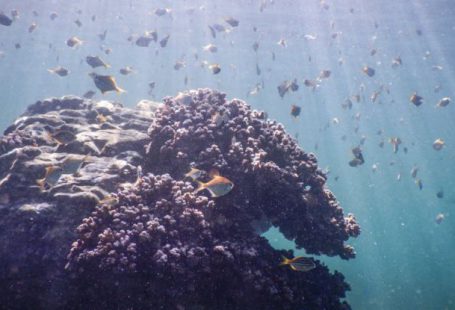Sharks are some of the most iconic and misunderstood creatures in the ocean. With their sleek bodies and sharp teeth, they have captured the fascination of humans for centuries. However, these apex predators are facing numerous threats that are pushing many species to the brink of extinction. The significance of shark conservation cannot be overstated, as these animals play a crucial role in maintaining the health of marine ecosystems.
Sharks: The Guardians of the Ocean
Sharks are often referred to as the “guardians of the ocean” due to their important role in maintaining the delicate balance of marine ecosystems. As apex predators, they help regulate the populations of other marine species, ensuring that the food chain remains in equilibrium. By preying on sick and weak individuals, sharks help to prevent the spread of disease and maintain the overall health of oceanic populations.
The Decline of Shark Populations
Despite their vital role in the ecosystem, shark populations around the world are facing severe declines. One of the primary threats to sharks is overfishing, driven by the demand for shark fins, which are considered a delicacy in some cultures. Shark finning, the practice of cutting off a shark’s fins and discarding the rest of the body at sea, is particularly devastating as it often results in the death of the animal.
Another significant threat to shark populations is bycatch, where sharks are unintentionally caught in fishing gear targeting other species. This can result in high mortality rates for sharks, further contributing to population declines. Habitat destruction, pollution, and climate change are also impacting shark populations, making conservation efforts even more critical.
The Importance of Shark Conservation
Shark conservation is essential not only for the survival of these magnificent creatures but also for the health of marine ecosystems as a whole. By protecting shark populations, we are safeguarding the balance of the ocean and ensuring the sustainability of fisheries. Healthy shark populations can help control the populations of prey species, preventing overgrazing of seagrass beds and coral reefs.
Furthermore, sharks are a significant draw for ecotourism, providing economic benefits to coastal communities around the world. Shark diving and other forms of sustainable shark tourism can generate revenue and create jobs, offering an alternative to destructive fishing practices. By valuing sharks alive rather than dead, we can promote conservation efforts and raise awareness about the importance of protecting these animals.
Challenges in Shark Conservation
Despite the importance of shark conservation, there are significant challenges that need to be addressed. One of the main obstacles is the lack of effective management and enforcement of regulations to protect shark populations. Many countries have weak or nonexistent laws regarding shark fishing, making it difficult to prevent overexploitation.
Illegal, unreported, and unregulated (IUU) fishing also poses a major threat to shark populations, with many species being targeted for their fins or meat. International cooperation is crucial in combating IUU fishing and ensuring the sustainable management of shark fisheries. Additionally, public awareness and education play a vital role in changing attitudes towards sharks and promoting conservation efforts.
Moving Forward: A Call to Action
In conclusion, the significance of shark conservation cannot be overstated. Sharks are essential to the health of marine ecosystems and play a crucial role in maintaining biodiversity. Protecting shark populations is not only a moral imperative but also an ecological necessity. By implementing sustainable fishing practices, enforcing regulations, and promoting conservation efforts, we can ensure a brighter future for sharks and the oceans they call home. It is up to each one of us to take action and be stewards of the ocean, ensuring that future generations can continue to marvel at these magnificent creatures.





